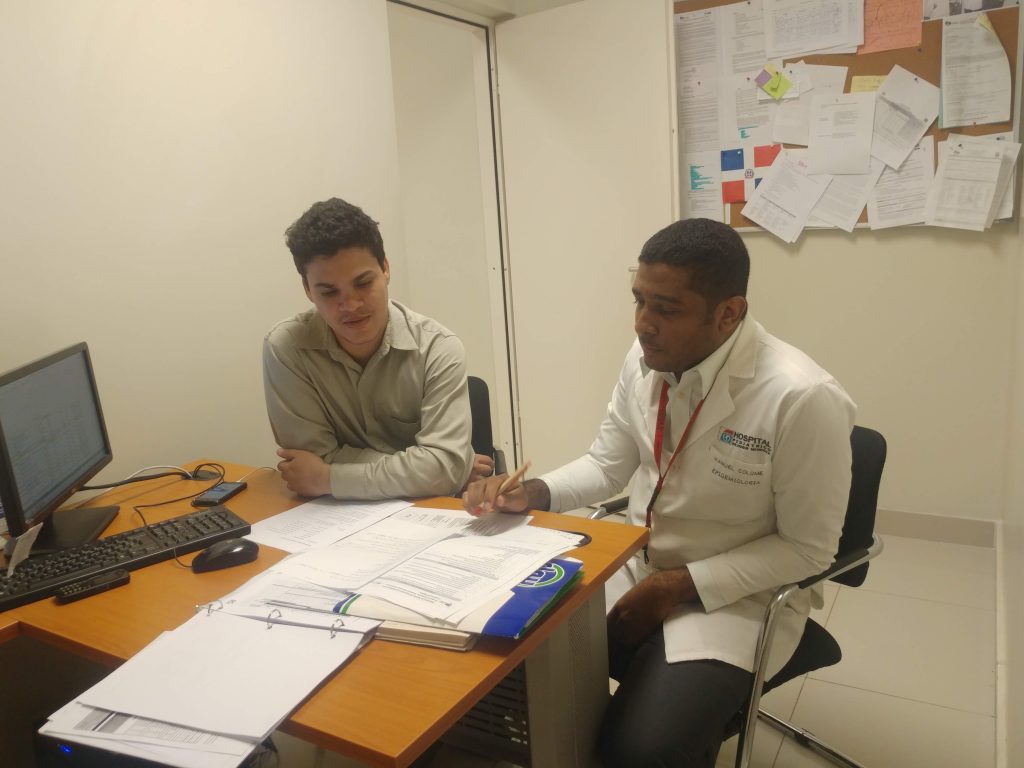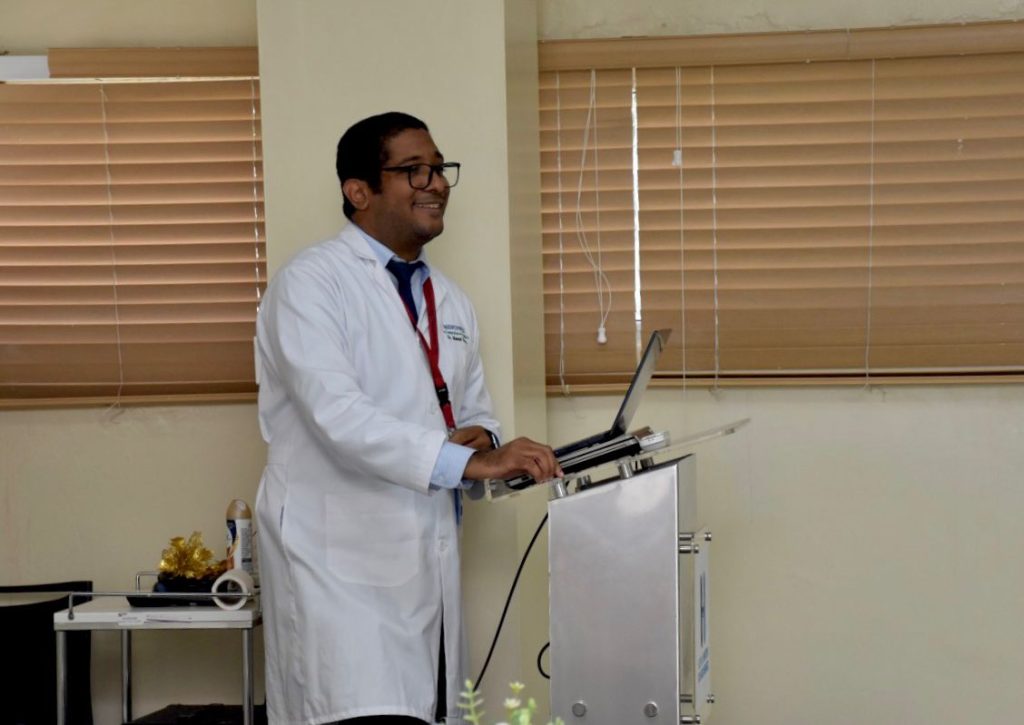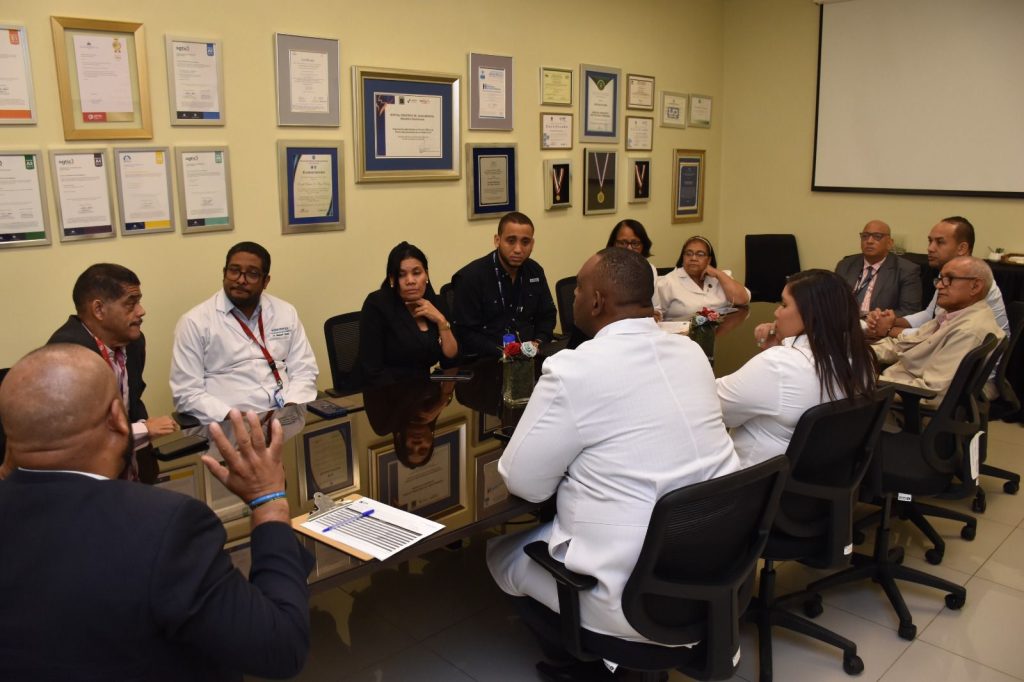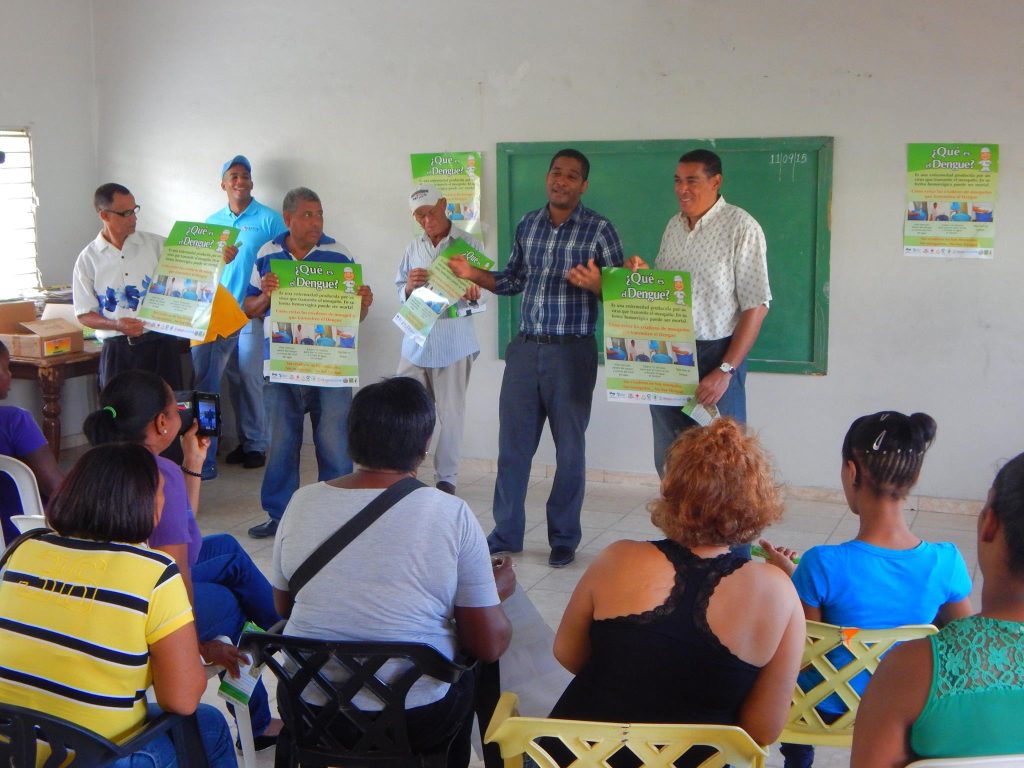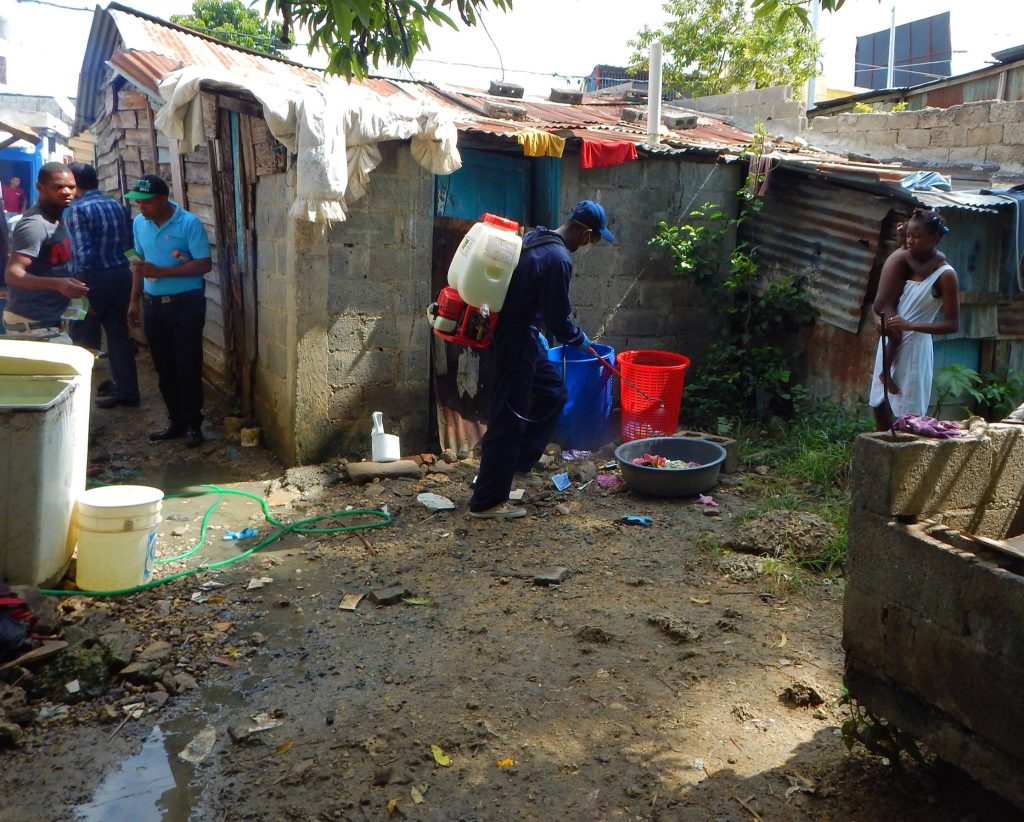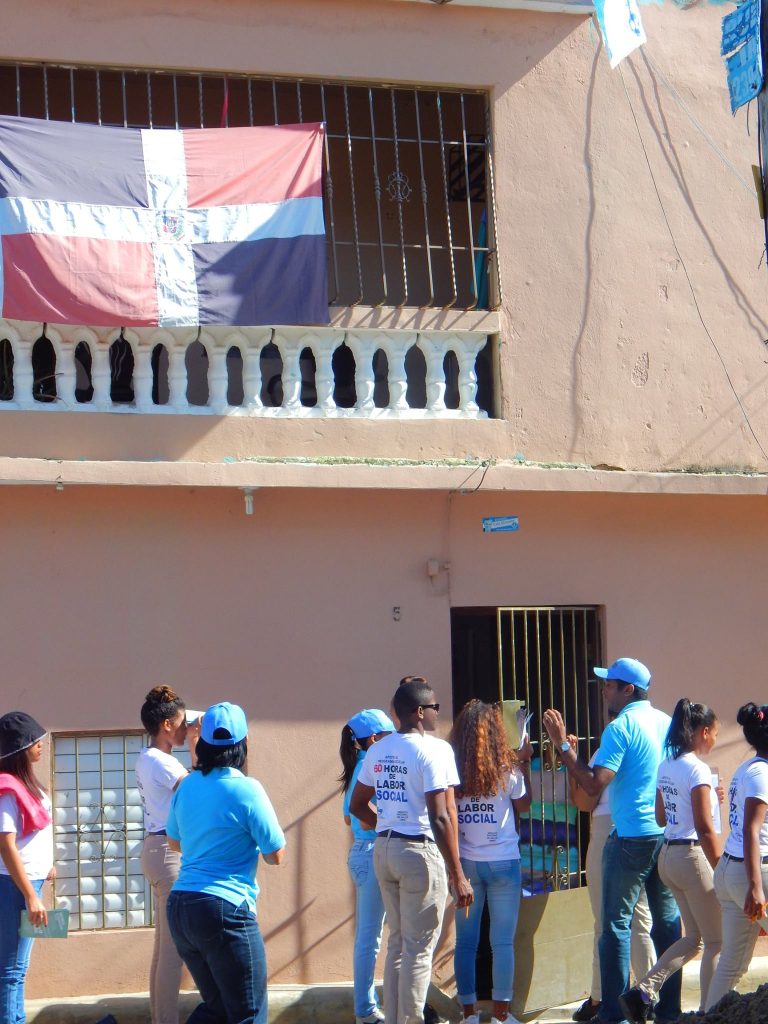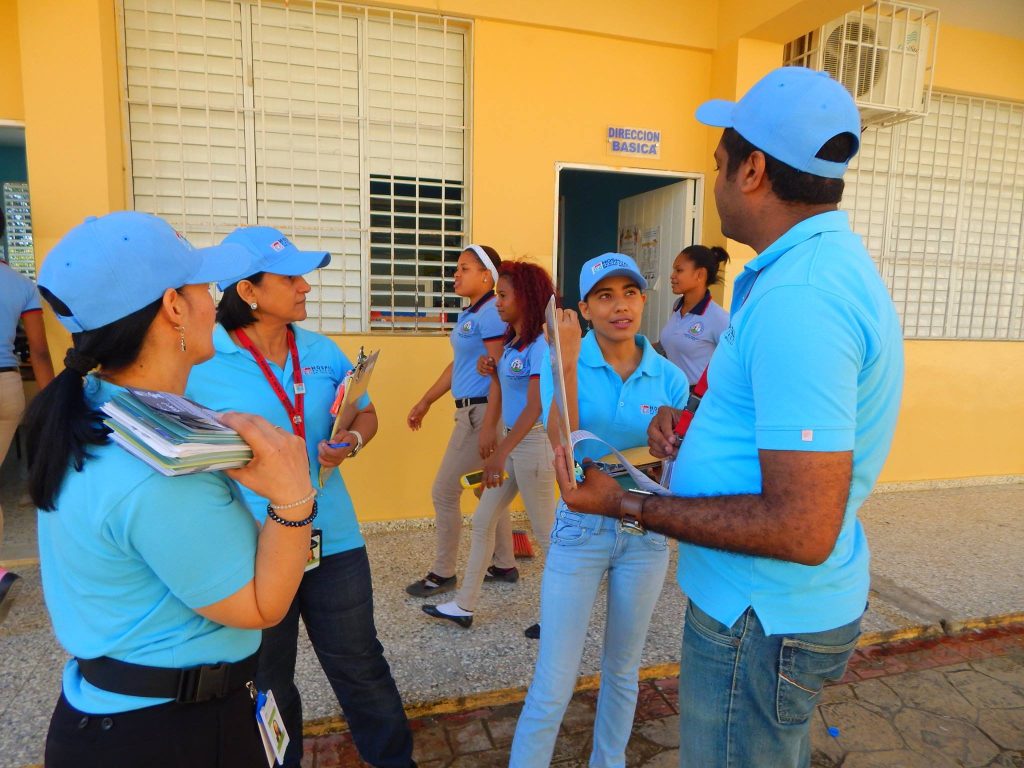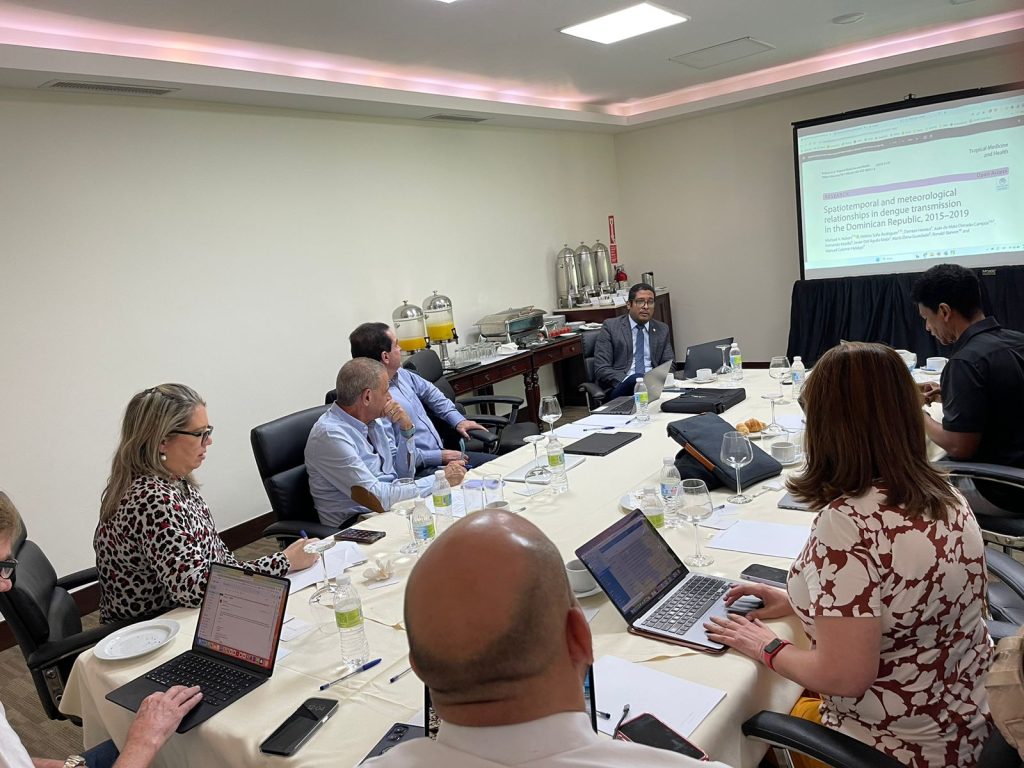Dominican Republic
Hub: Universidad Autonoma de Santo Domingo, Dominican Republic
Title: Artificial Intelligence and Eco-Epidemiology-Based Early Warning Systems for the Improvement of Public Health Response to Aedes-Borne Viruses in the Dominican Republic.
Team Members
General Objectives
Design a predictive model of Aedes-borne viruses in the Dominican Republic that provides early warnings of outbreaks and streamlines Public Health responses
Specific Objectives
1. Describe the epidemiology and trends of viruses transmitted by Aedes mosquitoes.
2. Detect outbreaks using suspected, probable, and confirmed cases of Aedes-transmitted diseases as a response variable.
3. Determine the impact of the coexistence of other arboviruses in the incidence of primary outbreaks.
4. Predict successfully the incidence of Aedes-borne virus outbreaks based on entomological, meteorological and epidemiological variables.
Image Gallery
Climate Change and the Increased Risk of Aedes-Borne Diseases in the Dominican Republic
Climate change has intensified the conditions that favor the proliferation of Aedes mosquitoes, significantly increasing the transmission of diseases such as dengue, chikungunya, and Zika in the Dominican Republic. Rising temperatures, heavy rainfall, and prolonged humidity have created an ideal environment for mosquito population growth, leading to a considerable increase in the risk of epidemic outbreaks. As an island nation, the Dominican Republic is particularly vulnerable to these phenomena, highlighting the urgent need for innovative and sustainable solutions to mitigate the impacts of climate change on public health.
In this context, diseases transmitted by Aedesmosquitoes pose a critical challenge for the country. According to data from the Pan American Health Organization (PAHO), in 2023, 27,972 cases of dengue were reported in the Dominican Republic, along with significant outbreaks of chikungunya and Zika that have affected thousands of people. These figures underscore the urgent need to develop effective strategies to predict and prevent these outbreaks more precisely and promptly.
To address this challenge, the Health Research Institute of the Universidad Autónoma de Santo Domingo is leading an innovative project aimed at developing a community-oriented early warning system based on artificial intelligence. This system seeks to integrate epidemiological, meteorological, entomological, and community data to predict, prevent, and respond to outbreaks effectively and equitably.
The system is structured around four key pillars:
- Risk assessment and outbreak prediction: Advanced AI models, such as convolutional neural networks adapted to multivariable data, analyze mosquito population trends, climatic variables, and health records to generate early warnings.
- Hazard surveillance and real-time forecasting: Innovative tools monitor environmental factors, such as flood risks and mosquito breeding patterns, to produce precise, real-time forecasts.
- Risk communication and education: Customized AI-powered chatbots have been developed to inform local communities about preventive measures and health alerts. These tools are tailored to accessible and culturally relevant formats.
- Strengthening response capacity: Collaboration with community leaders, local authorities, and community health workers is fostered through specialized training programs, enabling them to implement and maximize the use of the system.
Although the system is still under development, pilot tests are planned in high-risk communities to evaluate its real-time effectiveness. Preliminary results will help refine the models, improve prediction accuracy, and enhance the timely dissemination of alerts. In the long term, these solutions are expected to scale regionally and globally, fostering collaboration with other countries facing similar challenges.
A central element of this project is its commitment to the responsible and inclusive use of AI. The active involvement of community leaders, local authorities, and public health experts ensures that the tools developed address the specific needs of vulnerable communities, promoting equity in access to health information and services.
This project is part of the Global South AI4PEP Network, a program that drives innovation in AI for pandemic and epidemic preparedness. Through this initiative, the Dominican Republic demonstrates leadership in adopting advanced technology and local expertise to tackle critical public health challenges, adapting to the effects of climate change and prioritizing sustainable solutions for future generations.













